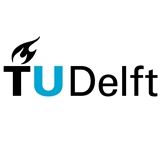PostDoc, AITech – TU Delft Faculty/department Technology, Policy and Management Maximum employment 38-40 hours per week (1,0 FTE) Duration of contract 1 year, could be extended to 2 years. Salary scale €3225 – €4274 per month
Deadline for the applications (15th April) and the starting date (as soon as possible).
Technology, Policy and Management The Faculty of Technology, Policy and Management (TPM) develops robust models and designs, to solve the complex challenges of today’s networked society. TPM combines insights from the engineering sciences with insights from the humanities and the social sciences. The Department of Values, Technology and Innovation (VTI) focuses on the value dimension of comprehensive engineering, the overarching research theme of the Faculty of Technology, Policy and Management (TPM). It uniquely comprises philosophers, economists and risk scholars. It studies how to develop and diffuse responsible technological innovations that reflect deeply held social and moral values. The department is one of the largest groups in the world studying value aspects, economics and risks for a wide range of sociotechnical systems. The department plays a leading role nationally and internationally in research in responsible innovation and design for values. The Ethics and Philosophy of Technology section is one of three sections within the VTI Department. The Section plays a central role worldwide in research on ethics and philosophy of technology. The Section provides for service teaching at all engineering programs of TU Delft, primarily in ethics but also in philosophy of engineering methodology, philosophy of science and in critical thinking for engineering students. We develop and provide our teaching in close collaboration with (assistant/associate) professors in engineering, to provide for tailor-made education that connects well with the focus of the different engineering programs.
Job description
Intelligent systems adhering to human responsibility and normative constraints. As a result of rapid and impressive technological developments, applications and the impact of autonomous intelligent systems on our society becomes increasingly
present. Several ethical codes and normative frameworks have been proposed to support the development of ‘responsible AI’, usually based on principles such as beneficence, non-maleficence, justice, autonomy, and explainability. It is implicitly assumed that
these principles can be translated into operational constraints for software and systems. However, such translation to concrete technical requirements is not a straightforward process, leads to conflicting requirements, and demands deliberation between a number
of stakeholders (developers, users, individuals affected by system’s actions, legal experts, etc.). This postdoctoral research position will focus on diminishing the gap between principles and practice of moral responsibility and adherence to (social and legal)
norms for intelligent autonomous systems. Focusing on the question of how we can achieve meaningful human control over autonomous systems, different ethical frameworks and principles will be studied to understand the challenges and processes necessary to incorporate
such concepts into computational models. This will lead to case studies of different design approaches that will engage relevant stakeholders to capture adherence to social, legal, ethical norms, and, ultimately, human responsibility.
Requirements
We are looking for applicants with the following qualifications:
Candidates with a PhD degree in or analytical philosophy (e.g. ethics and philosophy of action) and strong affinity (or degree in) computer Science are strongly encouraged
to apply .
• Candidates with a PhD degree in or analytical philosophy (e.g. ethics and philosophy of action) and strong affinity (or degree in) computer Science are strongly encouraged
to apply .
• Excellent English skills;
• Flexibility and readiness to work in teams.
Conditions of employment
Fixed-term contract: 1 year, could be extended to 2 years.
TU Delft offers a customisable compensation package, a discount for health insurance and sport memberships, and a monthly work costs contribution. Flexible work schedules
can be arranged. An International Children’s Centre offers childcare and an international primary school. Dual Career Services offers support to accompanying partners. Salary and benefits are in accordance with the Collective Labour Agreement for Dutch Universities.
Information and application
Applications will be sent to
vacature-tbm@tudelft.nl.
For information about this vacancy, you can contact Professor.
J. van den Hoven, email:
m.j.vandenhoven@tudelft.
For information about the selection procedure, please contact Ms. Anita van Vianen, HR advisor, email:
a.p.vanvianen@tudelft.nl.

